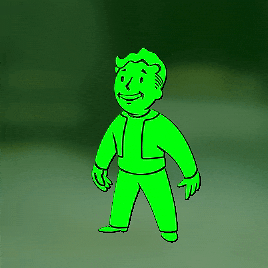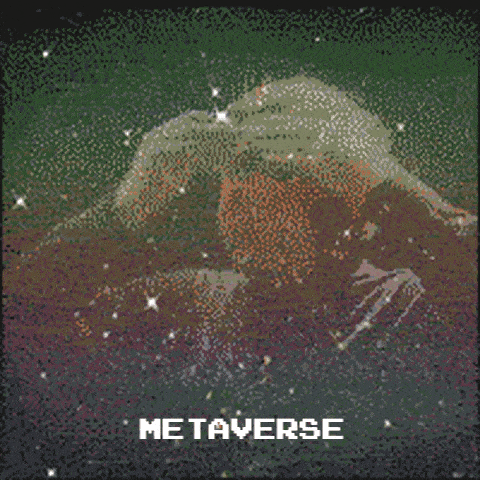- Rune's Newsletter
- Posts
- Unlocking the Future: Interoperability in Gaming with Rune - Issue #11
Unlocking the Future: Interoperability in Gaming with Rune - Issue #11
Leave Your Mark

Issue #11
Unlocking the Future: Interoperability in Gaming with Rune
January 17, 2024 • 12.5 minutes
In the ever-evolving realm of video games, a quiet yet significant revolution is taking place, one that's all about the control and ownership of our digital assets. As gamers, we pour hours into building impressive game libraries and accumulating unique in-game items. Yet, we often overlook one crucial aspect: do we really have full control over these digital treasures?
Imagine a scenario where, suddenly, gamers face the risk of losing access to their entire game libraries. It’s a startling reminder of a growing issue in the gaming world — the fragile nature of digital asset ownership.
Here at Rune, we're tackling this challenge head-on. Our mission isn't just about breaking new ground; it's about innovating within the gaming landscape to transform how digital assets are managed and owned. Today, let's dive into the concept of interoperability in gaming and its power to reshape our interaction with digital game assets, making the gaming experience more player-driven, engaging, and inclusive.

Understanding Interoperability in Gaming
Interoperability in the gaming world is a concept that's reshaping how we understand and interact with our digital playgrounds. At its core, it's about creating a seamless connection between different gaming platforms and systems. Imagine being able to carry your game assets, like that hard-earned armor or unique skin, across various games and platforms. This is the essence of interoperability.
We're already seeing the beginnings of this in the gaming industry. Developers are using APIs (Application Programming Interfaces) to allow different software applications to interact. This means your favorite game could let you access features or in-game items from other games.
But why does this matter to you, the gamer? It's all about breaking down the barriers of gaming experiences confined to a single platform or ecosystem. Your achievements, purchases, and progress could transcend a single game, giving you a more unified and expansive gaming experience.
The gaming industry is at a crossroads with this concept. Some companies are building exclusive, closed ecosystems, while others like Roblox and Epic Games are moving towards an open, cross-platform approach. This divergence reflects the varied visions for the future of gaming - a future that could either be limited to isolated platforms or flourish in a connected gaming universe.

The Players Lack of Control Over Game Libraries and Assets
As gamers, we've all experienced the excitement of building our personal game libraries and acquiring unique in-game assets. But there's a looming question that often goes unasked: do we truly control what we've earned and bought in these digital realms?
The harsh reality is that the control over game libraries and assets is often more illusion than fact. A disconcerting example of this is when players face the risk of losing access to their game libraries due to policy changes or account issues – a scenario that isn't just hypothetical but has occurred in the gaming industry. This situation sheds light on a broader, more systemic issue – the precarious nature of digital asset ownership in gaming.
Interoperability, or the lack thereof, plays a significant role in this. In the current gaming landscape, most platforms and games operate in silos, with assets and progress locked within specific games or ecosystems. This limitation not only restricts player freedom but also diminishes the value of these assets. After all, what's the worth of a rare in-game item if it's confined to a single game, on a single platform?
The impact on players is multi-fold. There's a feeling of transience and uncertainty regarding the items and achievements players have invested time and resources in. Moreover, it stifles the potential for a richer gaming experience where progress and assets could seamlessly flow between games, adding layers of depth and engagement.

Paving the Way for Greater Interoperability in Gaming
The journey towards greater interoperability in gaming is akin to navigating uncharted waters – it's complex, but the potential rewards are immense. For the gaming industry, this means embracing a paradigm shift from isolated experiences to a more interconnected gaming ecosystem.
One fundamental step in this direction is through the development and implementation of standardized APIs and web services. These technological solutions enable different gaming platforms and services to communicate and share data more efficiently. For example, a game on one platform could use an API to allow players to import their character or assets from a game on a completely different platform.
Another significant avenue is the utilization of blockchain technology. Known for its robust security and decentralization capabilities, blockchain offers a way to securely manage transactions and store digital assets. This could mean that in-game currencies or assets are stored on a distributed ledger, ensuring their security and transparency. Blockchain's potential in gaming goes beyond just secure transactions; it paves the way for a new level of asset interoperability and player empowerment.
Moreover, for the industry to move towards interoperability, there needs to be a collective willingness among developers and publishers to collaborate and adopt open standards. This requires a shift in mindset from seeing other platforms as competitors to potential partners in creating a unified gaming experience.
Of course, there are challenges to consider, such as ensuring security, maintaining game balance, and protecting intellectual property rights. However, the benefits – a richer gaming experience, increased value for players, and new opportunities for the industry – make this a pursuit worth exploring.

Leave your mark on the future of gaming with Rune
As we reach the end of our exploration into interoperability in gaming, it's clear that we're standing on the brink of a new era in the gaming world. This isn't just about technology; it's about redefining the gaming experience, making it more inclusive, interconnected, and empowering for players.
The journey towards greater interoperability is filled with challenges, but the potential it holds for revolutionizing the gaming industry is undeniable. By embracing new technologies and collaborative efforts, we can transform how players interact with games, breaking down barriers between platforms and creating a more unified gaming universe.
At Rune, we're committed to being at the forefront of this exciting transition. We understand that it's not just about creating a product; it's about contributing to a movement that reimagines the future of gaming. A future where players have true control over their digital assets, where gaming experiences are more cohesive and dynamic, and where the boundaries of what's possible are continually expanded.
As we look forward to this promising future, we invite you, the gamers, developers, and enthusiasts, to join us in shaping it. Together, we can redefine the landscape of digital gaming and create experiences that resonate with and empower our community.
~ Kyle B, Founder of Rune
Important events for Rune
 The ForgeOnce inside the Forge, users are presented with a 3x3 Grid—a familiar, yet intuitive crafting interface common across a magnitude of gaming worlds. |  Rune MaterialsRune Materials are unique digital assets that can be minted at zero cost to the user. They are both digital collectibles and functional tools within the Rune ecosystem. |
Gaming News

Ubisoft Exec Urges Gamers to Embrace "Not Owning" Games
Ubisoft's Director of Subscriptions, Alex Tremblay, suggests gamers should adapt to the idea of not owning their games, comparing it to the shift seen in music and television. Despite concerns about preservation and ownership, Tremblay emphasizes that not owning a game won't affect progress or invested time. While acknowledging gamers' perspectives, he promotes services like Ubisoft Plus, assuring access to games on demand. However, concerns linger about game availability in subscription services and the potential loss of titles in an all-digital future.

Take-Two Challenges Remedy's Logo for Alan Wake 2
Take-Two Interactive, the parent company of Rockstar Games, is taking legal action against Remedy, the developer of Alan Wake 2, to prevent the use of its new logo. Take-Two argues that Remedy's logo might be confused with Rockstar's branding. The trademark dispute was discovered on the UK's Intellectual Property Office website, with Take-Two opposing Remedy's use of the new logo. Known for its litigious approach, Take-Two has a history of legal actions, including targeting fan-made mods and remasters. Remedy, however, seems determined to contest Take-Two's objection. Despite the legal challenge, Remedy continues to use its stylized R logo, introduced in April of last year.

CD Projekt Red Shifts Focus to Project Orion, Sequel to Cyberpunk 2077
CD Projekt Red, the studio behind Cyberpunk 2077, is embarking on the development journey of its sequel, known as Project Orion. The narrative director, Igor Sarzyński, stated that Cyberpunk 2077 was merely a "warm-up," signaling the team's readiness to kickstart work on the next game. While Cyberpunk 2077 faced backlash upon its 2020 launch, subsequent updates and the Phantom Liberty expansion have improved the game's standing. The announcement of Project Orion suggests CD Projekt Red is gearing up for a grander venture, but given the lessons learned from Cyberpunk 2077's rocky launch, the studio emphasizes the importance of taking the time needed for development. The Witcher series' next installment is also in the pipeline, with CD Projekt Red applying insights gained from Cyberpunk 2077's launch to enhance the console ports' quality.

CS:GO Unveils Ultra-Rare $1 Million AK-47 Blue Gem Skin After 10 Years
In a gaming rarity, an elusive AK-47 Case Hardened skin, known as the Blue Gem, has surfaced in Counter-Strike: Global Offensive (CS:GO) after a decade of obscurity. The one-of-a-kind skin, believed to be worth around $1 million, is a Factory New, StatTrak version with the coveted 661 pattern. Despite the Case Hardened AK-47's introduction in 2013, this specific variant remained undiscovered until recently, appearing on a Chinese trading site. Popular Twitch streamer ohnePixel estimates its value at $800,000 to $1 million, with the potential to surpass this figure due to its exceptional rarity and hype. While the owner and location of the skin remain undisclosed, its unveiling has stirred considerable excitement in the CS:GO community.

Thank you for choosing Rune. Your enthusiasm fuels our passion. Stay tuned for more exciting content next week. Have a fantastic week ahead!
Quick Questions or Ideas?Post them in the discord! |
Overview of The ProjectWe’ve laid out our entire project in an easy to read whitepaper. |
Feedback
We strive to create a gaming ecosystem that is inclusive for everyone in the community. Please take this 2-minute survey to help us improve the website and launcher.